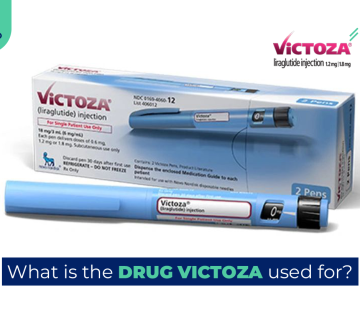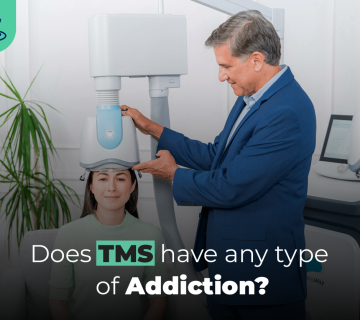Who Should Not Take Ketamine?
Ketamine therapy is a popular treatment option for peoples who struggling with mental health disorders such as depression.
Since this breakthrough therapy has shown commitment to delivering relief and enhancing overall health, it is important to recognize that ketamine treatment may not be right for everyone.
It is important to explore who is not a good candidate for Ketamine therapy to ensure the safety and successful outcome of the therapy.
Let’s look into the details.
Feeling depressed or anxious? Not seeing improvement with regular treatment? Visit Atlantis Wellness Center to consult with our professionals.
Wondering if Ketamine therapy is good for your condition?
What Is Ketamine Therapy?
It is a procedure in which a small amount of low-dose ketamine is provided to a person under a physician’s advice. The amount and time of these sessions can vary.
Each session may last 40 minutes, but the whole period depends on how the person responds.
When a person goes for ketamine therapy, they are watched closely by medical provider. They ensure safety and comfort. The ketamine enters their vein, providing exact dosage and immediate results.
The secure space of a medical environment adds a layer of confidence for those who choose this process.
Remember, ketamine therapy is not the same for everyone. Plans are made according to each person’s needs and objectives.
After studying a person’s medical background and their response to past procedures, the physicians decide the best way to continue.
How Does Ketamine Therapy Work?
The accurate mechanism of ketamine healing effects is still being researched.
However, it is believed this drug makes new brain connections. It can help to improve mood and reduce symptoms.
Additionally, ketamine emerges to lower inflammation, which helps to get better mental health.
Studies show that ketamine can affect a major neurotransmitter called glutamate. This plays a big part in its antidepressant management. Ketamine works on the NMDA receptor. This helps balance how much glutamate is released. That can then change different brain circuits that handle mood and emotions.
How can Ketamine Therapy be Beneficial?
Ketamine can quickly help with depressive signs in many people. Unlike usual mood lifters that might need weeks or even months to work, ketamine therapy can bring comfort in hours or days!
Plus, if other therapies have not worked for you, ketamine will be. It has a great choice for those finding other treatments ineffective.
Who Is Not a Good Candidate for Ketamine Therapy??
Who should not take ketamine? Some people have conditions that do not work with it. For example, patients living with psychosis-based illnesses like schizophrenia or schizoaffective disorder might not be suited for this therapy.
There is an ongoing study researching the possible benefits of ketamine in these conditions, but there is a risk that ketamine might aggravate psychotic thought procedures.
Furthermore, if you have a serious reaction to ketamine, it might not be right for you. It is not recommended for people grappling with untreated high blood pressure either.
FDA does not approve compounded ketamine products for psychiatric disorders.
- Uncontrolled High Blood Pressure and Heart Disease
Ketamine might boost your heartbeat and blood pressure levels. That’s why those with heart trouble or high blood pressure that is not controlled have a risk. Their heart condition might worsen, and ketamine treatment could be unsafe for them.
- History of Schizophrenia and Schizoaffective Disorders
Ketamine could potentially heighten symptoms. It may magnify illusions and false beliefs, affecting one’s mental health negatively.
- Substance Abuse and Addiction History
Ketamine can be abused or lead to addiction. A person with a past of addiction or substance exploitation generally isn’t considered suitable for this therapy. The chance of falling back into addiction or developing a new one is just too large for ketamine therapy to be safely suggested.
- Liver and Kidney Disease
Those with liver or kidney issues might not process ketamine well. This could lead to possible toxicity or harmful effects. These conditions might mess up how ketamine is metabolized and excreted, which makes the treatment risky and unpredictable.
- Pregnancy or Breastfeeding
The safety research on ketamine therapy for expecting or nursing people is limited. Until we have clearer information, it’s better to stay away from ketamine treatment while pregnant or breastfeeding to safeguard the mother’s and the child’s well-being.
Can Spravato Ketamine Treated PTSD?
Spravato (esketamine) nasal spray isn’t FDA-approved for PTSD treatment.
The FDA only approves Spravato for tackling severe depression (TRD) and major mood disorder (MDD) in adults feeling suicidal.
This approval comes with the condition that it’s used alongside an oral antidepressant.
Related: How Does Spravato Work?
Summing Up
Who is not a good candidate for ketamine therapy?
- People with uncontrolled high blood pressure
- People with certain heart conditions
- Those with a history of psychosis
- Pregnant women
- People with substance abuse issues
Ketamine treatment can lend a fast hope to those struggling with mental health issues.
Yet, it’s not a solution for all. An essential discussion with a healthcare professional can help determine if this therapy works well for you.
FAQs
Can I drive home after ketamine treatment?
It’s not advisable. Ketamine treatment could result in side effects such as feeling dizzy or a distorted view of reality. Have someone drive you home instead.
How long does a ketamine treatment session last?
Usually, a session goes for around 40 minutes. Yet, the complete treatment time might differ. It’s based on how a person reacts and the doctor’s advice.
Is ketamine therapy safe?
Usually, ketamine therapy is secure when given by experienced healthcare workers in a regulated setting. Yet, it’s vital to share your health records and any worries with your healthcare provider.







No comment